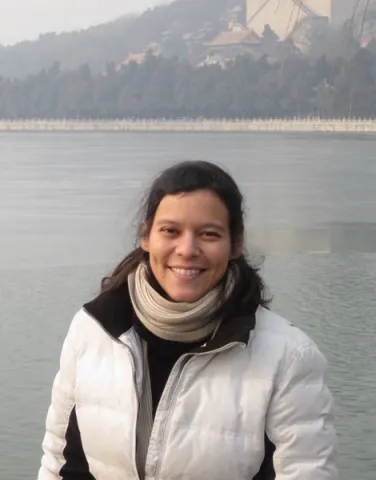Project overview
EPSRC Early Career Fellowship
Physical phenomena observed in nature can be modelled by a wide range of mathematical theories. From shock waves in non-linear optics, to turbulence in hydrodynamics, and gravitational ripples caused by collapsing black holes, scientists have a strong grasp on the complex equations governing these phenomena. Nevertheless, solving these equations can be arduous, often done numerically or by taking the parameters of the theory to be small, hence approximating the results as a series of terms. This is a procedure called perturbation theory, and it plays a major role in fields ranging from mathematics to engineering.
When the later terms of this series increase in magnitude, the series diverges. Despite this, summing a small number of such terms often gives a good approximation, and the series is called asymptotic. This behaviour, rather than problematic, is essential to build a complete understanding of physical observables. Hidden in it is a realm of phenomena so small that they disappear from perturbation theory (non-perturbative), but which can grow to eventually dominate our results, changing the physics.
These phenomena are widely found in mathematical descriptions of nature, but the existing methods to study them are mostly problem specific, with varying rigour and practicality. A systematic, unified framework of asymptotics is still missing. A powerful method which studies the intimate relation between asymptotics and non-perturbative phenomena is resurgence theory.
The proposed work aims to use resurgence to unify the different strands of research in asymptotics, bridging methods and disciplines, to obtain a comprehensive and practical theory of asymptotics. Blending the theoretical but powerful aspects of resurgence with practical, numerically driven theories of (exponential) asymptotics, we will be able to effectively construct full non-perturbative solutions to physical problems where only the perturbative series is known.
The physical problems that will be addressed during this project belong to a wide spectrum of research areas in mathematical sciences. Examples of these are: the formation of localised patterns in boundary value problems; the emergence of instabilities from time evolution in non-linear PDEs; asymptotic analysis of free energies of matrix models and gauge theories, and their dependence on coupling constant and rank of the gauge group; calculation of Stokes invariants for linear differential equations, from perturbative data or using integrability tools.
These problems occur in the areas of continuum mechanics, mathematical analysis, non-linear systems and mathematical analysis. The scope and potential inter-disciplinary impact of this research is evident from the universality of the features controlling asymptotic behaviour, which this project is set to address.
Physical phenomena observed in nature can be modelled by a wide range of mathematical theories. From shock waves in non-linear optics, to turbulence in hydrodynamics, and gravitational ripples caused by collapsing black holes, scientists have a strong grasp on the complex equations governing these phenomena. Nevertheless, solving these equations can be arduous, often done numerically or by taking the parameters of the theory to be small, hence approximating the results as a series of terms. This is a procedure called perturbation theory, and it plays a major role in fields ranging from mathematics to engineering.
When the later terms of this series increase in magnitude, the series diverges. Despite this, summing a small number of such terms often gives a good approximation, and the series is called asymptotic. This behaviour, rather than problematic, is essential to build a complete understanding of physical observables. Hidden in it is a realm of phenomena so small that they disappear from perturbation theory (non-perturbative), but which can grow to eventually dominate our results, changing the physics.
These phenomena are widely found in mathematical descriptions of nature, but the existing methods to study them are mostly problem specific, with varying rigour and practicality. A systematic, unified framework of asymptotics is still missing. A powerful method which studies the intimate relation between asymptotics and non-perturbative phenomena is resurgence theory.
The proposed work aims to use resurgence to unify the different strands of research in asymptotics, bridging methods and disciplines, to obtain a comprehensive and practical theory of asymptotics. Blending the theoretical but powerful aspects of resurgence with practical, numerically driven theories of (exponential) asymptotics, we will be able to effectively construct full non-perturbative solutions to physical problems where only the perturbative series is known.
The physical problems that will be addressed during this project belong to a wide spectrum of research areas in mathematical sciences. Examples of these are: the formation of localised patterns in boundary value problems; the emergence of instabilities from time evolution in non-linear PDEs; asymptotic analysis of free energies of matrix models and gauge theories, and their dependence on coupling constant and rank of the gauge group; calculation of Stokes invariants for linear differential equations, from perturbative data or using integrability tools.
These problems occur in the areas of continuum mechanics, mathematical analysis, non-linear systems and mathematical analysis. The scope and potential inter-disciplinary impact of this research is evident from the universality of the features controlling asymptotic behaviour, which this project is set to address.
Staff
Lead researchers
Collaborating research institutes, centres and groups
Research outputs
Ines Aniceto, Jorge Noronha & Michał Spaliński,
2025, Physical Review D, 111(7)
Type: article
Ines Aniceto, Alba Grasi & Christopher J. Lustri,
2024, Journal of Physics A: Mathematical and Theoretical, 57(7)
Type: letterEditorial
Christopher J. Lustri, Ines Aniceto, Daniel J. VandenHeuvel & Scott W. McCue,
2023, Proceedings of the Royal Society A: Mathematical, Physical and Engineering Sciences, 479(2278)
Type: article
Ines Aniceto, Daniel Hasenbichler & Adri Olde Daalhuis,
2023, Journal of Physics A: Mathematical and Theoretical, 56(19)
Type: article
Ines Aniceto, Daniel Hasenbichler, Christopher Lustri & Christopher Howls,
2021, Nonlinearity, 34(12), 8248
Type: article
Michael C. Abbott & Ines Aniceto,
2021, Physical Review D, 103(8)
Type: article
Inês Aniceto, Gökçe Başar & Ricardo Schiappa,
2019, Physics Reports, 809, 1-135
Type: review
